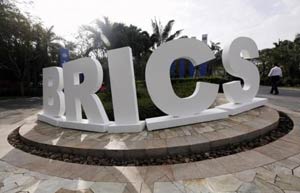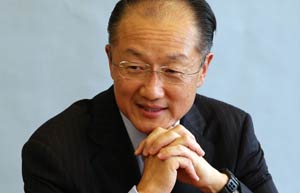Conveniently scheduled at the end of the World Cup, the sixth BRICS summit presents the leaders of five emerging economies a truly historic opportunity, not least because it is likely to see the establishment of a new development bank and reserve currency pool arrangement.
This move could strike a true trifecta - recharge global economic governance and the prospects for development, as well as pressure the World Bank and the International Monetary Fund to get back on the right track.
The two Bretton Woods institutions, both headquartered in Washington, originally and with good reason put financial stability, employment and development as their core missions. That focus, however, became derailed in the last quarter of the 20th century. During the 1980s and 1990s, the World Bank and the IMF pushed the "Washington Consensus", which offered countries financing but conditioned it on a doctrine of deregulation.
With the benefit of hindsight, the era of the Washington Consensus is seen as a painful one. It inflicted significant economic and political damage on the developing world. Worse, the operations of the World Bank and the IMF are perceived as rigged against emerging and developing economies. The unwritten rule that the head of the IMF is always a European and the World Bank chief always an American is only a superficial but no less grating public expression of that.
Worse still is the fact that the voting structure of both institutions is skewed toward industrialized countries - and grants the United States veto power to boot. It wasn't always that way. As Eric Helleiner shows in one of his two new books, Forgotten Foundations of Bretton Woods: International Development and the Making of the Postwar Order, China, Brazil, India and other countries wanted development goals to remain a core part of the Bretton Woods institutions. Some of their proposals eventually made it into the policy mix of the World Bank and the IMF, including short-term financing, capital controls and policy space for industrial policy.
 |
 |
| Shanghai most likely headquarters for BRICS development bank | World Bank head says new entrants 'will be welcome' |
